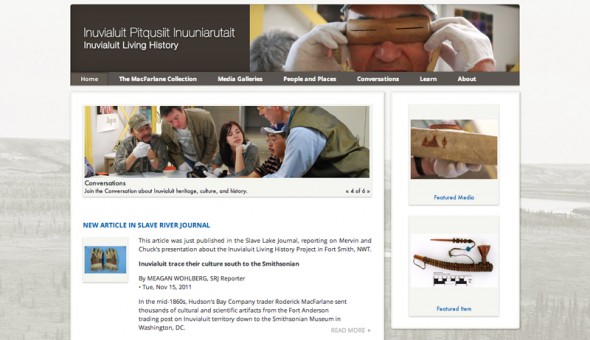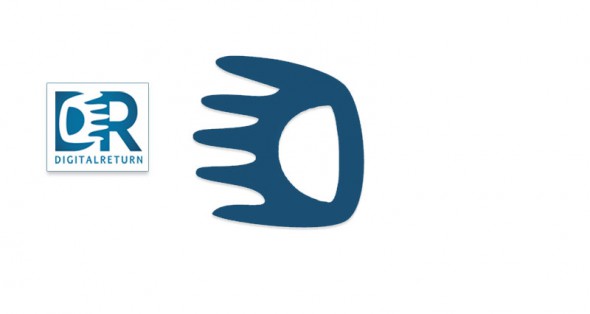After the Return: Digital Repatriation and the Circulation of Indigenous Knowledge

Home page, the Inuvialuit Living History Project
Next week I will travel with my Inuvialuit Living History Project colleague and collaborator Mervin Joe to Washington D.C. to participate in an exciting workshop called “After the Return: Digital Repatriation and the Circulation of Indigenous Knowledge”. Organized by Kim Christen (Washington State U), Josh Bell (Smithsonian Institution), and Mark Turin (Cambridge and Yale), the workshop will bring scholars, members of Indigenous communities and representatives of cultural heritage institutions together at the National Museum of Natural History to discuss the opportunities and issues associated with the “digital return” of cultural heritage to their communities of origin. Mervin and I, along with Arctic Studies Center curator Stephen Loring, our project partner, will be talking about the initiation, development, and community outreach related to the Inuvialuit Living History website, as well as the many questions that have arisen around ownership and physical repatriation of the MacFarlane Collection, on which the project is based. We are looking forward to excellent conversations, presentations, and debates over the role of digital heritage in institutions and communities, and to the conversations that will surely follow after the workshop is finished. The workshop is just one element of a larger project called “Digital Return”, which will create an online database of related projects, policy documents, and scholarship that is intended to bring stakeholders and practitioners into dialogue. From the Digital Return website:
Digital Return is an online resource providing direct links to projects related to the return of cultural and linguistic materials to indigenous communities globally. Over the last twenty years as digital technologies have grown and collecting institutions have embarked on repatriation projects, the return of digital collections to source communities has become more commonplace. These projects, however, are as diverse as the communities who undertake them. Digital Return is an evolving site to catalogue these projects, provide information to source communities and to highlight divergent ways to manage digital heritage collections and resources.

